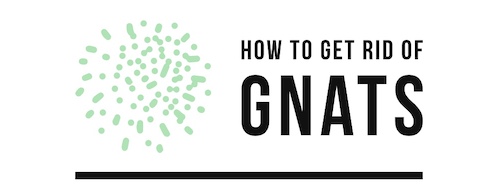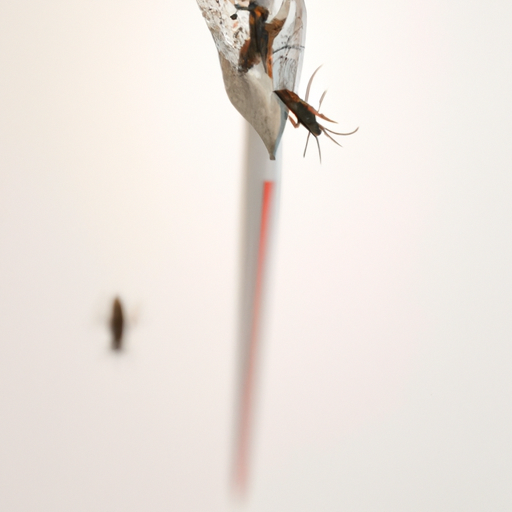How to Use Natural Remedies to Kill Fruit Flies
Fruit flies are a common nuisance in many homes. They can be difficult to get rid of, but there are some natural remedies that can help. Here is how to use natural remedies to kill fruit flies:
1. Apple Cider Vinegar Trap: Fill a small bowl with apple cider vinegar and add a few drops of dish soap. The soap breaks the surface tension of the vinegar, causing the fruit flies to sink and drown when they land on it. Place the bowl near areas where you have seen fruit flies and leave it overnight or until all the fruit flies have been trapped.
2. Herbs: Certain herbs such as basil, lavender, mint, rosemary, and thyme contain compounds that repel fruit flies naturally. Place these herbs in areas where you’ve seen them or near potential entry points for them such as windowsills or doorways.
3. Garlic Spray: Make your own garlic spray by blending two cloves of garlic with one cup of water in a blender until smooth then strain out any solids using cheesecloth or a fine mesh strainer before transferring into an empty spray bottle for easy application around your home’s entry points and other areas where you’ve seen fruit fly activity..
4. Cloves: Cloves are another natural remedy for getting rid of pesky fruit flies because they contain eugenol which is toxic to insects like fruit flies when ingested in large amounts over time (it won’t kill them instantly). To use cloves as an effective repellent place several whole cloves around windowsills and other potential entry points for these pests or grind up some dried cloves into powder form then sprinkle it around those same areas..
By following these steps you should be able to effectively get rid of any unwanted visitors without having to resort to harsh chemicals!
The Benefits of Using Traps to Get Rid of Fruit Flies
Fruit flies are a common nuisance in many homes and businesses. They can be difficult to get rid of, but using traps is an effective way to reduce their numbers. Here are some of the benefits of using traps to get rid of fruit flies:
1. Traps are easy to use and require minimal effort. All you need is a container, such as a jar or bottle, and some bait, such as apple cider vinegar or overripe fruit. Simply fill the container with the bait and leave it out overnight; the next morning you should find that many of the fruit flies have been attracted to it and trapped inside.
2. Traps are safe for both humans and pets since they don’t involve any chemicals or pesticides that could be harmful if ingested or inhaled.
3. Traps can help reduce overall populations by trapping adult fruit flies before they have a chance to lay eggs which will hatch into more fruit flies later on down the line.
4. Traps can help identify problem areas in your home where there may be too much moisture or food waste that is attracting these pests in the first place so you can take steps to address those issues as well as trapping them directly with your trap setup(s).
5. Finally, traps provide an easy way for people who don’t want to use chemical sprays or other methods of pest control but still want an effective solution for getting rid of their pesky fruit fly problem quickly and easily without having to resort to more extreme measures like calling in an exterminator!
What You Need to Know About the Lifecycle of Fruit Flies
Fruit flies are a common pest found in homes and businesses around the world. They are small, winged insects that feed on decaying fruit and vegetables, as well as other organic matter. Understanding the lifecycle of fruit flies is important for controlling infestations.
The lifecycle of a fruit fly begins with an egg. Female fruit flies lay their eggs near sources of food such as overripe fruits or vegetables, garbage cans, or drains. The eggs hatch into larvae within 24 hours and begin to feed on the surrounding material. After several days of feeding, the larvae form a pupa which is a resting stage before they emerge as adults.
Adult fruit flies live for about two weeks during which time they mate and reproduce more eggs to continue their lifecycle. During this time they also feed on sugary substances such as nectar or rotting fruits and vegetables in order to gain energy for reproduction.
Once mating has occurred, female fruit flies will lay up to 500 eggs at once near sources of food where they can easily hatch into larvae again after 24 hours have passed by. This cycle continues until environmental conditions become unfavorable or until all available food sources have been depleted by the growing population of adult fruit flies and their offspring.
Controlling infestations requires understanding how these pests reproduce so that steps can be taken to reduce breeding sites such as removing overripe fruits from counters or sealing off drains where larvae may be present in large numbers waiting to emerge into adulthood again when conditions are favorable enough for them to do so successfully .
Tips for Keeping Your Home Free from Fruit Flies
1. Clean Up Spills and Crumbs: Fruit flies are attracted to sugary liquids and food particles, so it is important to clean up any spills or crumbs that may be on your countertops or floors.
2. Keep Fruits and Vegetables in the Refrigerator: Keeping fruits and vegetables in the refrigerator will help prevent fruit flies from being attracted to them. If you have produce that needs to ripen, store it in a paper bag away from other foods.
3. Empty Garbage Cans Regularly: Make sure you empty your garbage cans regularly, as fruit flies are attracted to decaying organic matter such as food scraps or spoiled fruits and vegetables.
4. Use Sticky Traps: Sticky traps can be used to trap fruit flies before they become a problem in your home. Place these traps near areas where you think the fruit flies may be entering your home, such as windows or doors leading outside.
5. Clean Drains Regularly: Fruit fly larvae can live in drains, so make sure you clean them regularly with a mixture of baking soda and vinegar followed by hot water for best results!
6. Seal Openings Around Windows & Doors: Make sure there are no openings around windows or doors where fruit flies could enter your home; use caulk if necessary!
The Dangers of Not Controlling a Fruit Fly Infestation
Fruit flies are a common household pest that can quickly become an infestation if not properly controlled. An unchecked fruit fly infestation can cause serious health and safety risks to humans and animals, as well as damage to property.
The most obvious danger of a fruit fly infestation is the potential for contamination of food sources. Fruit flies feed on decaying organic matter, including fruits and vegetables, which can lead to the spread of bacteria such as E. coli and Salmonella. These bacteria can cause food poisoning in humans if ingested, leading to severe illness or even death in some cases. In addition, fruit flies may also carry other disease-causing organisms such as viruses or parasites that could be transmitted through contact with contaminated surfaces or food items.
Fruit fly infestations can also cause damage to property due to their feeding habits. The larvae of these pests feed on organic matter found in damp areas such as drains or garbage cans, which could lead to clogged pipes or damaged walls if left unchecked for too long. In addition, adult fruit flies may lay eggs inside furniture upholstery or carpets where they will hatch into larvae that will then feed on the material itself causing further damage over time.
Finally, an uncontrolled fruit fly infestation may also pose a risk to pets and other animals living in the home due to their ability to transmit diseases through contact with contaminated surfaces or food items just like humans do. This could lead not only to sickness but possibly even death depending on the severity of the infection caused by these pests’ presence in your home environment.
In conclusion, it is important for homeowners and business owners alike take steps towards controlling any potential fruit fly infestations before they become out of hand due both health risks posed by these pests as well as potential damages caused by their presence within your home environment

